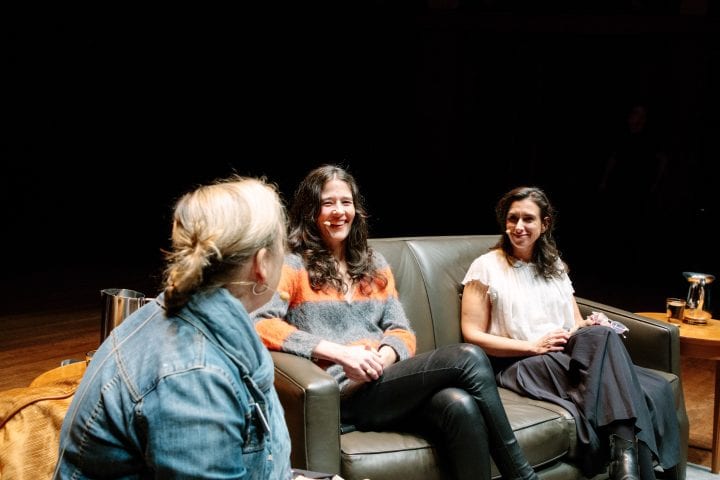
Introductions: Jodi Kantor & Megan Twohey
February 15, 2020
By Ruth Dickey, SAL Executive Director
On October 7, 2017, Jodi Kantor and Megan Twohey published the first of several explosive New York Times stories on Harvey Weinstein. From that moment forward, their reporting fundamentally changed the conversation about sexual harassment and shifted a balance of power that had previously seemed intractable.
In She Said, Kantor and Twohey take us behind the scenes for a front row seat through their investigation and step by step reporting to unearth the story, earn the trust of women who had been victimized, and uncover Weinstein’s decades of harassment and assault and the systems that enabled that abuse.
She Said is a brave and brilliant book that reads like a page-turning thriller. It’s a book about power, and abuse of power. It’s a book about complicity and about the structures that keep abusers in place—and it is also a book about journalism and what it means to build a body of evidence one carefully validated fact at a time. In an era where journalists are increasingly under attack and the idea of finding truth is routinely undermined and ignored, She Said is a rousing testament to the rigor, importance, and power of the journalistic process.
Kantor and Twohey’s careful and nuanced reporting reverberated around the world. It ushered in a tide of women’s stories of harassment, and unprecedented consequences for figures like Matt Lauer, Charlie Rose, Mario Batali, and Al Franken. Here in Seattle, the King County Sexual Assault Resource Center shared that, after the story broke, their caseload of people reporting assaults and receiving support increased more than 20% and has stayed at that level.
Sexual harassment and assault thrive on silence. Kantor and Twohey’s journalism has shattered that silence and complicity, creating a new context and leverage for women’s stories to matter in profound ways.
Journalists Jodi Kantor and Megan Twohey lectured at Benaroya Hall on January 29, 2020, as part of our 2019/20 Literary Arts Series; SAL Executive Director Ruth Dickey gave this introduction.